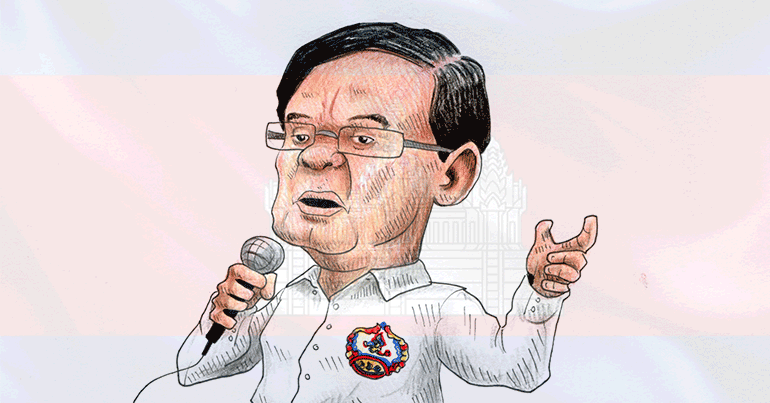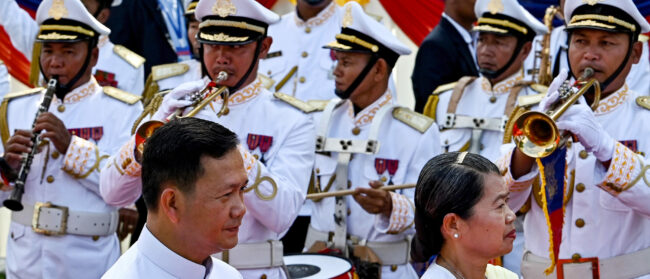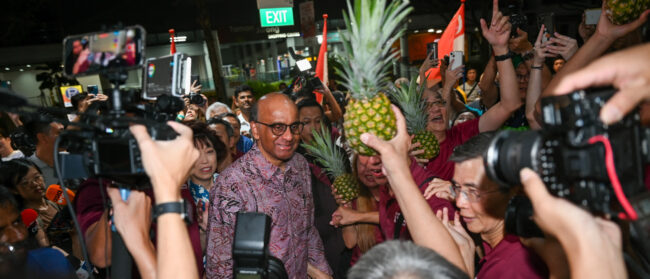
Who is he?
Like most high-ranking members of Cambodia’s government, Interior Minister Sar Kheng was part of a vanguard of senior Khmer Rouge defectors who were installed in Phnom Penh after the invading Vietnamese army drove the ultra-Maoist regime from power. Sar Kheng, the brother-in-law of former Cambodian People’s Party (CPP) President Chea Sim, is often described as the most senior figure in a party faction within the ruling party allegedly opposed to Prime Minister Hun Sen’s bloody consolidation of power over more than 30 years of effective one-party rule. The faction reportedly refused to mobilise its forces during the violent purge of the party’s royalist rivals in 1997.
Why is he in the news?
Following the dissolution of the popular Cambodia National Rescue Party and the securing of all 125 National Assembly seats in this year’s election by the CPP, a spate of widely publicised comments from Sar Kheng were critical of his colleagues’ complicity in corruption, deforestation and increasingly resented Chinese investment along the nation’s coast. His criticisms have raised suggestions that the rumoured split within the CPP could give way to full-on factional infighting – particularly in light of the prime minister’s apparent grooming of his own children as his successors.
Where did this idea come from?
Hun Sen’s Cambodia author Sebastian Strangio told Southeast Asia Globe that while the interior minister had long been seen as a potential reformer within the ranks of the CPP, Sar Kheng himself had done precious little to earn his reputation. “I’ve always seen this perception of Sar Kheng to be exaggerated,” he said. “I think it was born out of the wishful thinking of a lot of Western observers who wanted a democratic alternative to Hun Sen — in the early 2000s, there was a lot of talk among groups like [the International Republican Institute] and indeed the Cambodian opposition itself that the CPP could be split along ideological lines, and that a reformist faction led by Sar Kheng would potentially be willing to break away and ally with the [Sam Rainsy Party] of the time to oust Hun Sen and to establish a more liberal, tolerant government in Cambodia.”
So is he a genuine alternative to Hun Sen’s strongman rule?
Perhaps unsurprisingly for a man who cut his teeth in the Khmer Rouge, the idea that Sar Kheng would jeopardise his party’s hold on Cambodia’s political institutions seems unlikely. “Now, were Hun Sen to be removed or to fall ill or pass away, who knows at that point,” Strangio said. “I think Sar Kheng has at various junctures made statements geared towards convincing Western diplomats and officials that the CPP’s committed to reform. But reform doesn’t necessarily mean a total deconstruction of the party and a democratic liberal system in its place – I think he’s talking about tweaking around the edges. I think one has to see these things in proportion.”


